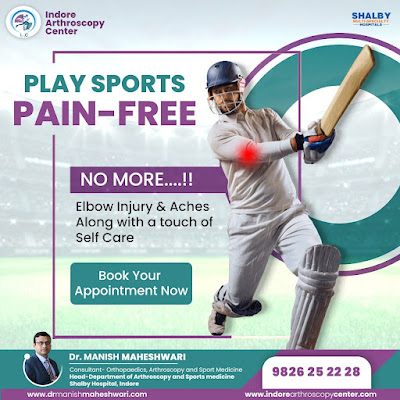Meniscus tears are mostly of two types one that would need surgery and the other that would heal with time or would need noninvasive medical, support or physical therapy. Any injury or ageing related wear and tear to the knee could cause pain. It is best to consult an experienced and established physician or surgeon who has expertise with joint problems. Dr. Manish Maheshwari the best Knee surgeon in Indore would be the best person to suggest whether your knee pain requires just some medicine or physiotherapy or a surgical procedure.
Surgery is not required if the surgeon thinks that the injury is not very severe or will heal over a period with care. The injury tends to heal if it is in the vascular region of the meniscus as it gets good blood flow which is important for healing. Non-surgical methods of treatment for minor injuries in the vascular region of the meniscus will mostly be advised initially with the RICE method.
RICE:
R stands for Rest. Keeping pressure off the knee and giving it required rest for a stipulated period could be the top advice for healing a minor meniscus injury.
I stands for Icing or cold fomentation. Injury is mostly accompanied by swelling, which can be reduced by applying ice to the swelling for about 10-15 minutes per session.
C stands for compression. Knee braces and elastic tapes can also reduce swelling and keep your knee stable and protect the knee from any awkward movement.
E stands for Elevation. Keeping your knee and legs in a raised position while resting would restricting the blood from accumulating in your feet and help it flow back towards the heart. This will save your leg from swelling.
Physical Therapy would be suggested to strengthen the muscles and tendons supporting your knee joint so that the knee is aptly supported while doing its normal functions. The exercises are bound to improve your flexibility, range of motion and stability along with muscle strength.
Medicines through injections to the knee to reduce swelling and pain could be effective for around 2-4 weeks and let the meniscus heal itself in the meantime. Depending on the symptoms knee braces or other mechanisms could be advised to stabilize and limit your knee movement to allow it to heal properly.
Severe meniscus injury or injuries to an avascular region of the meniscus will certainly attract an invasive method to repair the meniscus or remove parts lodged in the knee locking its functions. After the surgery, the first question that arises in our mind is how long will it take our knee to be fully functional again.
Let's look into some major points that lead to the recovery of our Knee after surgery. Depending on the surgical method used to repair the recovery would generally take four to six weeks. Recovery for arthroscopic surgery would be faster than the conventional method of surgery or open surgery. Other factors affect the recovery period after the surgery:
- Type of surgery (total or partial)
- Severity of the injury
- Overall health of the patient
- Usual activity level of the patient
- Success of physical therapy and home exercises advised
Pain and swelling would subside very quickly in the techniques being used for surgery like arthroscopic surgery. On the second or the third day you can be advised to perform daily routine activities and home chores. Returning to your workplace, if it does not strain your knee much, will also be fast due to the minimally invasive techniques used nowadays. After a couple of weeks, you should be able to perform the full range of motions of your knee. Driving could also be started if you are not taking painkillers that might keep your concentration and focus a bit off.
Your full range of activities even sports or heavy lifting could be resumed in 5-6 weeks after your surgery.
Recovery after any surgery is more about your willingness to recovery fast by adhering to the advice of the doctor without procrastination.
Please go through our social media :
Please do follow on Instagram


Comments
Post a Comment